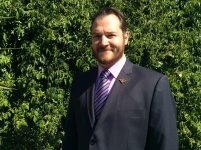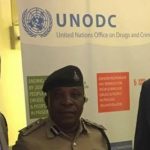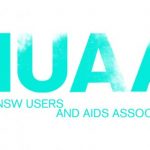Former Police For Cannabis Legalisation: An Interview with Weeded Warrior’s Damon Adams

Growing concerns over the opium trade were central to the League of Nations establishing the 1925 Geneva Convention, which imposed global restrictions on the production and use of opium and coca. Cannabis was added to the agenda at the last minute.
After the meeting, the Commonwealth of Australia wrote to the state governments, requesting they enact laws to criminalise the use of cannabis. In the ensuing years, each jurisdiction banned the possession and use of the plant.
Cannabis use became widespread in this country in the late 1960s. The initial response of authorities was to increase the penalties for personal use.
However, a 1977 Senate inquiry recommended a national policy to remove criminal penalties for personal use and possession. This resulted in some jurisdiction decriminalising minor offences, including South Australia in 1987 and the ACT in 1993.
Cannabis continues to be the most widely used illicit substance in Australia. The 2016 National Drug Strategy Household survey found that 10.6 percent of the adult population surveyed had recently consumed the drug.
An Essential Media poll of 1,000 Australians taken last year found that 55 percent of participants thought cannabis should be taxed and regulated, like alcohol and tobacco. But despite growing calls for legalisation, many politicians are still against the move.
An untapped resource
The United States led the global push for drug prohibition in the beginning of the 20th century. But, today, that nation is one of the world leaders in legalising marijuana.
Eight US states and the District of Columbia have legalised recreational use, which means one in five US citizens now lives in a jurisdiction where they’re free to take the plant. 29 states in the US have legalised the use of medicinal cannabis.
Colorado was one of the first two states to legalise recreational use on 6 November 2012. Now, legal cannabis is a billion dollar a year industry in that state. Last year, it generated $198.5 million in tax revenue alone, which has been funnelled into public health programs and schools.
State officials in Colorado have said the availability of the drug has had no overall adverse effects since it began being sold in retail stores in 2014. Cannabis products are heavily regulated and they’re sold in childproof containers.
The time is coming
There are politicians out there, such as NSW Greens MLC Dr Mehreen Faruqi and Victorian Sex Party MLC Fiona Patten, who propose that Australia follow the example set by the US and establish a legalised and regulated market.
There are even those who’ve been involved with Australian law enforcement that want to see the change.
Damon Adams is a former South Australian police officer, who over recent years has been campaigning for an end to marijuana prohibition.
Sydney Criminal Lawyers® spoke to Mr Adams, director of Weeded Warriors, about the law enforcement approach to cannabis, the issues with accessing legal medical marijuana, and why he believes it’s inevitable that the plant will be legalised.
Firstly, Damon, you used to be a representative of Law Enforcement Against Prohibition: an international group of police officers that want to see an end to drug prohibition. In 2013, you ran as a senate candidate for the Drug Law Reform Party SA.
And today, you’re one of the four coordinators of Weeded Warriors. Can you tell us a little about the work this group does?
Basically, it’s an ex-service organisation that looks after veterans, and offers them alternative therapies for service induced injuries: be it pain, PTSD, or otherwise.
So guys that come back from deployment and go through the DVA path of psych meds or pain meds, a lot of them come to a brick wall. They can’t physically take the meds anymore, because it’s just not conducive with quality of life.
Clearly, there’s a massive problem with the defence force culture, and the police culture as well. The amounts pills that are being prescribed and taken is crazy. And most of them are still on duty and serving day-to-day.
Because it’s a legal pill and it comes in a little blister packet, it’s all OK. People have that faith in the pharmaceutical industry, our government and the medical system. So everything’s going to be good.
But, we know a lot of pills do people harm. And there are other options to try. So people look to alternative therapies, like cannabis.
Back in 2007, you joined the South Australian police force, and served as an officer for several years. Today, you’ve a vocal cannabis advocate.
What led you from a position where you were enforcing laws against cannabis to actually start using the plant?
An injury, where I had to use opiates. I injured my knee at the Police Academy in 2007. And I had part of my meniscus removed in my right knee. It was a pretty bad pain.
I got put on a management plan of opiates, using Tramadol and Oxycontin. They were my standard breakfast for the next two or three years while I was in the police force.
I got to a point in time, where I had a dependency on them. My dosage had to go up because I was using them more. And then I had to start going onto a voluntary detox for a few weeks, and try not to use them. Then I went through withdrawals, as I’d been dependent on it for so long.
I was a young father at the time as well. I went to being a guy who had to sleep on the couch. I couldn’t sleep in bed with my wife anymore, because of the withdrawals my body was going through from legally prescribed opiates.
It was at that time that I had to get onto something else. I didn’t want to try Fentanyl patches. I didn’t want to try any other forms of opiates. I wanted to try something else. Something that would let me have a life again, where I wasn’t waking up in cold sweats, and could actually engage with my family.
I had a friend who had multiple sclerosis. She put me onto cannabis at the time. She sat me down and gave me a good talking to about how it affected her. She was only young as well and was dealing with the spasticity associated with her illness.
So I went out one night and got a little baggy behind the fish and chip shop. I made a bong out of a Gatorade bottle and had my first cone.
I was standard Christian breed. I had that job. And I voted Liberal. But, that first puff of cannabis changed my whole life. It wasn’t just the pain, it gave me insight into the way I looked at drugs, and the way I was educated about drugs. And what people told me about them.
I’d been on both sides of the fence. I’d been that dude that was kicking in the doors to now being the guy that was using cannabis to get myself off opiates.
I haven’t used opiates for three or four years now. Cannabis is my one stop shop. I’m healthy. And I’m about to finish a degree. I’m managing the pain in my knee. And I don’t have to buy any pills.
There’s a heavy-handed approach taken by law enforcement towards illicit drugs in Australia. And a lot of arrests are cannabis-related.
What do you think about the allocation of police resources towards enforcing cannabis prohibition? And in your opinion, what’s the general consensus amongst average police officers about the approach taken?
Seventy to 90 percent of police drug budgets would be cannabis-related. And most drug contacts will be cannabis-related. If they don’t have that drug to police anymore, that’s a massive chunk of their drug budget that they’re set to lose if they can’t justify it with other means, like another ice task force.
That’s your first question, it comes down to money. Cannabis is a big thing for them. They’re going to get a good chunk of the budget.
As for the second part, most of the police want cannabis not to be an issue anymore. Because it’s an awkward feeling when they go into place and there’s a grandma and grandpa in there and they’re growing their own plants. The policy is we have to take their plants.
It’s just one of those time consuming, shitty jobs no one wants to do. No one wants to find grow houses anymore, because then you’re tied up for hours or a day or two documenting all the crop. There’s no point.
It’s fantastic for them if they keep it illegal. It’s always going to be the number one for their budgets and their funding. In a while, they’re going to have to depend on a little more policing and a little bit less red light-green light tactics.
But, South Australia has been quite progressive in regards to its laws around cannabis compared to other Australian states and territories. It was the first jurisdiction to decriminalise minor marijuana offences back in 1987.
Can you explain how the laws work in South Australia?
It’s decriminalised here, which means you get an expiation notice. You’re allowed to grow one plant outside in dirt. Anything under lights or anything in any form of other substance is deemed illegal.
So you’re off to the Magistrate’s Court for nine plants or less. And anywhere more than nine plants it’s an indictable offence and you’re off to the District Court.
You can have one plant outside, but you can still get caught. So if you’re neighbour smells it and they ring up the police and say, “Mr Drugs has got a dope plant over his fence.” They’ll come and knock on the door and ask. If he says yes, they’ll take the plant and give him an expiation notice. It’s just like a speeding fine in NSW. Then he has 28 days to pay it, or he’ll have to be prosecuted for it.
We’re getting a lot of progress with a medical cannabis defence. Kelly Vincent got a bill through a couple of weeks ago where if drivers use medical cannabis, and they ask for a drug test, it would be a viable defence.
So that will be a change, if it gets through the other house.
There are more and more people getting it through doctors now. The only qualifying condition you need in South Australia to get medical cannabis is if you can benefit from it. So anyone can go to a GP, and if they found the medications they’ve been using haven’t worked, then they can try medical cannabis. They go through the TGA Special Access Scheme to access those products.
But despite the federal government and state governments passing laws to allow for legalised medical marijuana, the overwhelming majority of Australians using cannabis medicines can’t get their hands on any legal product.
Why’s this actually happening?
It seems that a lot of lobbyists are still putting up speed bumps and we can’t seem to find out why they’re putting them there. And it’s just a fear from ministers, who don’t want to go on the front foot and do something that has never been done in Australian before.
Every country where it has been done, it’s worked beautifully. We could use one of these models that is already there. All we need is a leader.
Everywhere that it’s happened, nobody’s had the traction to be able to oppose it. There are too many good stories coming out of it.
So what are you personally advocating for? Do you want to see cannabis decriminalised or legalised? Are you talking about medicinal use or recreational as well? And should people be allowed to grow at home?
All of the above. I’d like cannabis to be treated like a standard vegetable or fruit or food-bearing plant. If people want to grow it in their backyard they can. If they want to buy it in the markets on a Sunday they can, or even if they want to go to the pharmacy and get it that way.
The best analogy I can use is oranges. You can have an orange tree in the backyard and grow your own oranges and eat them. If you want to go and buy a bag of oranges you can. If you just want to go and buy a bottle of orange juice, because you don’t like eating oranges, you can. And if you don’t like the taste of oranges you can go to the pharmacy and buy Vitamin C pills.
And the regulation side it just needs to be the same as wine. You can share all the grapes and share your wine with your mate. But as soon as you’re going to start selling your own wine, it needs to come under the standard regulations.
The government says it’s going to establish a legalised medicinal cannabis supply. However, authorities keep on raiding medicinal cannabis suppliers who are already out there.
If the government is acknowledging that cannabis medicines works. Why go around shutting down the suppliers that are out there at the moment actually helping patients on the ground?
It’s the same old story. Until police get the word from up above, they’ll just keep up with standard policing. And it’s good news for them as well. The police love it. It bumps up their budget.
Every time the stories come up, you get a lot of conservative leaders that clap and cheer, because they’ve taken the druggies off the street. It’s just an education thing for them – to get them up to speed to let them know that it is actually being produced for people, and their families, and kids to help them.
I don’t think the suppliers do themselves any favours, when we still have the policing aspect to it. I know it’s a very brave and courageous thing to be open in public with it. But, it has to be either all or nothing. All growers need to come out and say, “Everybody’s growing.”
It’s one of those Catch 22’s for the growers as well, when they come out and get public about it, they make themselves a target for the police.
I’d like to see more families coming out of the woodwork and letting people know how they use it. I think that’s going to be the thing: a hearts and mind campaign.
Everyone knows it’s going to happen. We just need politicians that don’t have the intestinal fortitude to stand aside, and let the ones step up that can.
And lastly, recreational cannabis use is legal in eight US states. And 29 states have legalised its medicinal use.
What should Australian authorities be learning from the US at present?
They like to reinvent the wheel. They can see there’s 29 medical states. That’s 29 states with medical legislation and policies that we can already implement. They’ve perfected them. We can take the best of them all, and make our own one.
But Australian government has a really bad issue with implementing someone else’s policy. They want to make their own policies. They need to put their name on it, so they can have a bit of a legacy.
And as you said, there are eight states there. All you’ve got to do is go there and show your ID and show you’re over 21. And you can choose whatever ever cannabis products you want.
I think a lot more politicians need to go and have a look at these places and see that they haven’t fallen down. And see that they’re giving every single high school kid a college scholarship from the tax produced from cannabis.
It’s going great guns everywhere. It’s the gold rush of our generation, except it’s a green rush.
Damon thanks very much for taking the time out to speak with us today.
No worries.







